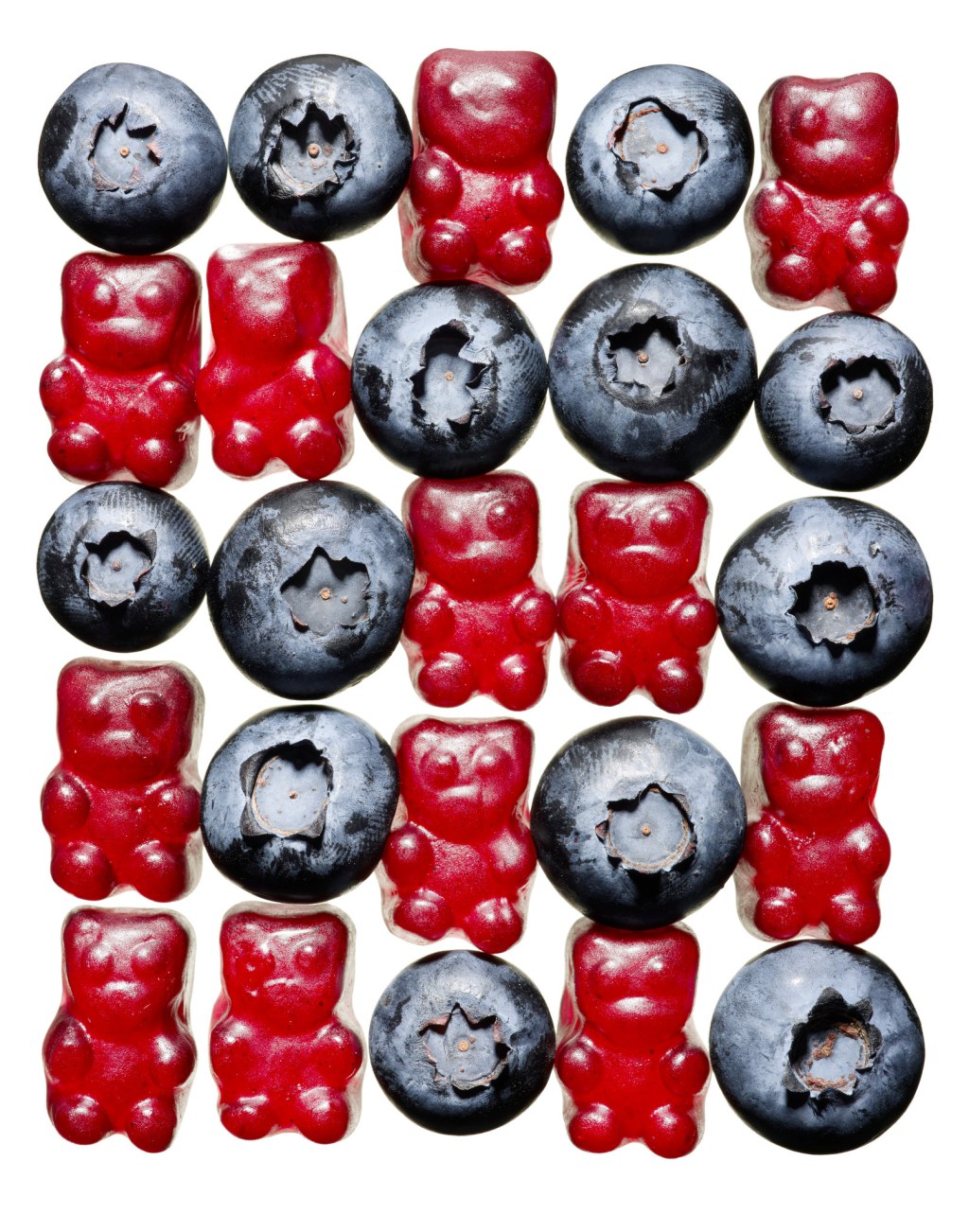Stocking up on immunity gummies to ward off COVID-19 may be a thing of the past, but the supplement market overall is stronger than ever.
From sleep-improving tinctures to gut-healthy gummies, Americans are turning to vitamins, minerals and supplements to proactively improve their health and well-being.
“The market has rallied back and it’s showing strong growth,” said Jostein Solheim, chief executive officer of Unilever’s health and well-being division. “It has sustained because people’s interest in their health and in seeking out solutions that support their health goals has just increased.”
Related Articles
Nielsen IQ identifies four categories within the wellness industry, including home scents, personal health, functional beverages and supplements, which are outpacing other verticals in terms of sales. The firm reports supplements are a $21 billion market, almost double the size of functional beverages at $12.3 billion.
Research shows that the trend is being driven by consumers who are proactively seeking solutions for self care, particularly as people become more educated about the ingredients and options. “Our consumer study showed that about 60 percent of Americans say they’re more engaged now with proactively managing their health than during the pre-pandemic years,” said Muriel Gonzalez, president of The Vitamin Shoppe.
While immunity supplements have lost steam since the pandemic, supplements that promote digestive health, weight management, sleep and hydration are driving the growth of the category.
Gut health, in particular, has become an area of focus for many people. Digestive diseases are pervasive, with the National Institutes of Health reporting between 60 million and 70 million Americans are impacted by one. Furthermore, thanks to social media and clinical evidence, consumers are more aware of the impact gut health can have on other issues like stress and overall mood — the NIH says the gut is responsible for 95 percent of the body’s total serotonin.
“People now understand the gut’s connected to everything,” said Ara Katz, cofounder and co-CEO of microbial health brand Seed, a leader in probiotic supplements.
Because of this growing understanding, Katz believes next-generation products will be “probiotics for specific organ systems and conditions.”

Other brands are also targeting the probiotic space. Ritual’s founder and chief executive officer Katerina Schneider reports that Synbiotic+, $54, was the company’s most successful launch to date and now represents more than 20 percent of its revenue.
“We’re always trying to understand the evolution of their [the consumer’s] needs and what’s top of mind for them,” Schneider said. “First is gut health. That’s the biggest open-ended category. In the United States people are suffering from a number of digestive issues, whether they’re stress-related or diet-related, or even hereditary.”
As microbiome health gains traction, glucose-focused supplements, notably those featuring berberine, are also growing due to the weight loss management properties. “This is being driven by the introduction of Ozempic,” said Walter Faulstroh, cofounder and chief executive officer of Hum Nutrition.
Berberine, coined nature’s Ozempic for its blood sugar management abilities, has become one of the hottest ingredients in the supplement market, as customers are looking for a natural and cheaper alternative to semaglutides. Brands like Hum Nutrition, Veracity, Revivele and Tally Health have responded with their own iterations featuring the ingredient.
“We see this trend continuing in the next year, especially given the huge investment and new introductions of additional drugs,” Faulstroh said, noting the product, which launched in October, has already become a bestseller. Social media has also fueled the ingredient’s popularity, as its hashtag on TikTok has more than 100 million views.
Sleep has always been a mainstay of the supplements category, and it continues to grow. Insights from McKinsey show that 45 percent of people call better sleep “a very high priority” and it is the “greatest unmet consumer need.”
Part of this unmet need could be attributed to the growing confusion in the category. Recently, researchers from Cambridge Health Alliance and the University of Mississippi found most melatonin products had up to 2.5 times the amount that was labeled. With this in mind, Ritual and Moon Juice both recently launched sleep supplements that lead with science and simplification.
“Two thirds of our customers said that they were having a hard time falling asleep and then also staying asleep,” said Schneider.
In the wake of inappropriate sleep aid use, Ritual’s Sleep BioSeries Melatonin, $25, slowly releases specific levels of melatonin over time. Similarly, Moon Juice’s founder Amanda Chantal Bacon employed a microdose of phytomelatonin (plant-derived melatonin) in Sleepy Magnesi-Om, $38, an iteration of its bestselling magnesium powder.
New approaches like these will be key for differentiation in the category, experts say.
“Unique ingredient formulations are going to be a big driver,” said Mark Lacy, an investment banking director at Raymond James. “Unique twists [and] proprietary blends are going to be the future rather than just simple letter vitamins.”
With sleep a top priority, magnesium itself has gained a cult-like following. The ingredient, which can also manage stress, has 1.2 billion views on its TikTok hashtag and sales for magnesium-based products grew by 25 percent at The Vitamin Shoppe during the first four months of 2023.
“[Magnesium] is in the zeitgeist now. It’s all over TikTok,” said Chantal Bacon, noting the brand’s Magnesi-Om, $42, has a high subscription rate. “Magnesium is the perfect on-ramp to wellness.”
Experts say to expect similar mood-boosting ingredients to gain traction, like mushrooms, adaptogens and nootropics. According to Lacy, stress, mood and cognitive function will become key categories going forward.
Hydration, which is also essential for brain health, is expected to continue growing with brands like Liquid I.V. normalizing the conversation around electrolytes, and Trace Minerals educating on the need to add in minerals typically lost in water filtration systems. Data from The Vitamin Shoppe shows searches for hydration and electrolyte products grew 200 percent over a one-year period on the website.
“Dehydration is such a fundamental challenge…75 percent of Americans are suffering from [it],” said Solheim.
The category has recently expanded. Moon Juice released Mini Dew, $44, a mineral- and electrolyte-based powder for hydration and brain health. Liquid I.V. launched a sugar-free format of its signature Hydration Multiplier, $26, to reach a wider audience.

New formats like powders are quickly replacing pills as the preferred method for ingestibles. “Pills are really easy, but we still don’t take them,” said Katie Wilson, founder of probiotic bar brand BelliWelli.
“There are many who suffer from pill fatigue…They want things that they look forward to taking,” Solheim agreed.
Gummies continue to boom, and many companies are experimenting with newer formats. For example, Sourse and Alice have both opted for chocolate-based bites. BelliWelli provides a dose of probiotics in dessert-flavored snack bars. Beekeeper’s Naturals and 8Greens pack their nutrients into lollipops. Thorne, which developed Caliray’s supplement that launched earlier this year, sells discs that dissolve into water.
Liquids are also gaining traction, said Lacy, pointing specifically to Mary Ruth’s, a brand known for its bestselling multivitamins that are available at Target, Whole Foods and The Vitamin Shoppe. Cymbiotika, Elix, Apothékary and Sakara Life have also tapped into this format through tinctures and liposomal delivery systems.
While pills still comprise the largest sector of the category, newer formats are driving consumer education. Nielsen IQ reports that 77 percent of shoppers “expect product labels to be more specific and transparent,” as they look to decode the rapidly proliferating category.
“The category going from 4,000 to 90,000 supplements without any major updates to regulation has made consumers their own advocates for safety and efficacy,” said Schneider.
At Ritual, that means transparency around all aspects of the production cycle, so consumers can explore ingredient sourcing, carbon emissions and clinical data on the website. For Hum Nutrition, education looks like content that clearly depicts how the product works, such as a video of how its bestselling bloat relief product Flatter Me, $26, breaks down certain foods.
While offering education and clinical evidence is key, experts say to avoid overwhelming the consumer when first introducing a new product. “Because of the clutter, put in a benefit first, and then back up with the ingredient,” said Solheim, pointing to Olly as an example. “That allows the user to hone in quickly and then do their research.”
Although certain formats, ingredients and companies are driving growth in the category, experts say there’s room for more. “There’s a lot of opportunity for innovation. It’s definitely not saturated,” said Solheim, citing women’s health as a key area for growth. “The addressable market is very large for products that deliver and can address these big needs. I see a lot of unmet need.”



